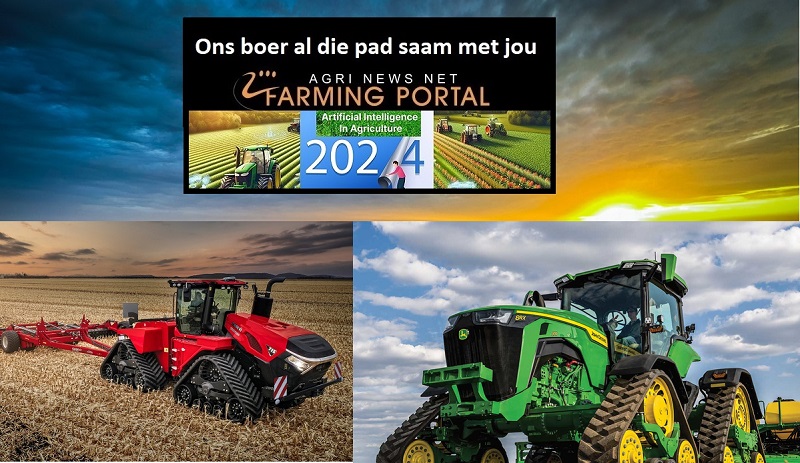In his Opening of Parliament Address, President Cyril Ramaphosa stated that the government “will increase funding to land reform, prioritise the transfer of state land and improve post-settlement support by strengthening the institutional capacity of responsible structures”.
This profound statement is at the heart of South Africa’s agricultural inclusive growth agenda. Over time, the South African government has amassed more than two million hectares of land that have never been released to beneficiaries with title deeds or long-term tradable leases. These now mostly underutilised government-owned farms were acquired through the proactive land acquisition strategy, and sat in the government landholding account.
Many black farmers we interact with on our journey tell stories of frustration and the inability to expand and commercialise farming operations because of a lack of secure access to land.
In instances where they have access to the land, the short-term leases with which the government provides them hinder access to capital and expanding their farming operations into commercial and viable businesses that could create sustainable jobs for communities.
To verify all these claims and stories, I went undercover to the Karoo to visit some of these government farms.
This farmer is successful and has proven himself worthy of farming in the harsh environment of the Karoo. He receives good support from organised agriculture and the provincial government and runs a sustainable commercial farming unit. Thus, a case arose that the farmer was an ideal candidate to receive title deeds that would enable him to raise more funds and expand the farming operation.
There are many more such cases across South Africa. These farmers have proven themselves to be ideal candidates for land beneficiaries. Transferring the land to them would precisely mimic the scheme the National Party government undertook in the 1940s.
 New government of national unity to prioritise land reform success, and not reinvent the wheel
New government of national unity to prioritise land reform success, and not reinvent the wheel
Back then, farmers were put on state land and given a five-year lease arrangement to prove themselves, with the first two years rent free. In year five, if they were farming successfully, they could buy the land at a discounted price and were provided affordable finance through the Land Bank, which was capitalised by the state.
In the present day, we see a different approach to farmer development. In some cases where farmers have succeeded despite insecure lease arrangements, they are unceremoniously and illegally removed from the farms by corrupt officials in the Department of Land Reform and Rural Development.
This lack of secure tenure to land is one factor contributing to South Africa’s long-standing challenge of duality, a topic discussed in greater detail in my recent book A Country of Two Agricultures.
Many black farmers we interact with tell stories of frustration and their inability to expand and commercialise farming operations because of a lack of secure access to land.
In instances where they have access to the land, the short-term leases the government provides them with hinder access to capital and expanding their farming operations into commercial and viable businesses that could create sustainable jobs for communities.
Service delivery and infrastructure maintenance
After interacting with farmers, I decided to drive to some small towns of the Karoo to see if the provincial and local governments are doing their part in maintaining roads, service delivery, and improving the quality of life of our people.
If we are to talk about agritourism, profitability of the farming business, education and the social well-being of families, adequate and effective service delivery is a bedrock of everything. Failure to deliver this critical function adds costs to family farms and agribusinesses, creating a sense of despair in the communities.
I traversed parts of the Western and Northern Cape within the Karoo region.
I must say, the Western Cape government has done a fair job of maintenance on provincial roads and small gravel roads. This makes the journey pleasurable for tourists in all vehicle types. Therefore, tourists should have no concerns about road conditions across the province.
Importantly, better roads enable farmers to reliably deliver their goods to markets, and easily go to church, and schools.
In the Northern Cape, there is room for improvement. The main provincial roads are in fair condition and are continuously maintained, bringing much-needed construction jobs to the towns and communities. Still, the small gravel roads seem to have not seen a grader in a while. This makes agritourism a challenge. Therefore, one can argue that the potential of tourism is suboptimal in the province.
Moreover, delivering lamb to the abattoir, wool to the Chinese market, becomes a cost burden to the farmers. The ultimate impact on both tourism and agriculture is felt by communities through high levels of unemployment and deepening poverty — leaving some towns with a sense of despair.
Questions
Despite some encouraging signs, we would like the provincial government of the Northern Cape to answer some questions about this incomplete housing project, in an area that so deeply needs it. During our visit, we could see spot signs and a few incomplete houses. Even more worrying, there were people taking away the building material instead of offloading. One wonders what is going on here.
Therefore, the task of changing this profound challenge is in our hands. We need proper management of limited resources, we must weed out corruption and bring capable individuals to municipalities with a sense of urgency and purpose to serve the people.
The programme of action from municipalities and the provincial government is clear — let’s get the basics right and focus on improving the network industries, beautifying the towns, sorting out water infrastructure issues, etc.
Some may wonder why I speak on matters of local government. The reality is that they affect farmers and agribusiness. This has been clear for some time in the Agbiz/IDC Agribusiness Confidence Index, where respondents (agribusinesses and farmers) have consistently highlighted these matters as constraints to business activity.
So, while I write from the Karoo, this is a reality across most South African provinces and municipalities. Therefore, I cannot agree more with President Ramaphosa’s latest statements that put effective provincial and local government as one of the top priorities for the seventh administration. Wandile















